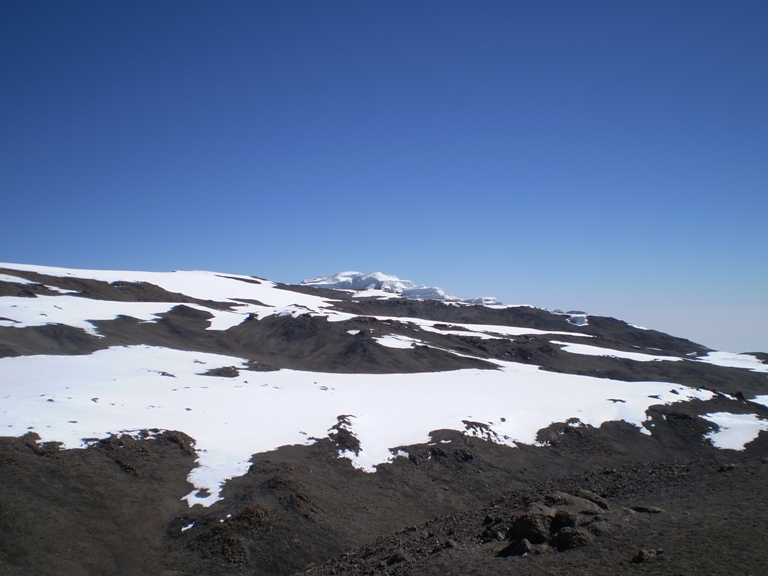I’m not sure if its because it gets darker earlier now (due to DST), or because it was under 40 degrees tonight, but reading the road left me chilled to the bone. About halfway through our assignment of the first half, I moved over to my bed, and covered myself with some blankets. Was it a coincidence that the main characters were trekking through snowy mountains at the time…probably not. But taking this coincidence at a surface level like that would probably do a disservice to what was really at work in this novel. Everything from the tone, to the setting, to the blunt, perforated, and yet fluid manner of the storytelling, to the events of the novel themselves help build an atmosphere of gloom, darkness, death, and a sense of a never-ending suffering. More than just a reaction to the cold temperature in my room, or the biting descriptions of the frost in the novel, my feeling of sudden cold was a result of the lifelessness of this novel. There is a lack of every characteristic of life, save motion and survival. Even endearing conversation is absent. This is not to say that I am criticizing the novel of poor storytelling, or poor writing—quite the opposite: the novel is TOO successful at portraying a post-apocalyptic world. The imagery of the long road that they follow, of the percolating darkness which permeates their surroundings every night, of the cold which threatens to ebb the already waning life out of them, and the environment around them—bleak, gray, cold, dull and lifeless is especially powerful in infusing into the reader the ultimate horror of a post-apocalyptic world. Adding to all of this, is the fact that we don’t know what has caused any of this to occur. We have no backstory information as to how these two characters began their journey, save several disturbing snippets of scenes from when life had not yet ended on earth. One thing is certain however, Death is all but welcomed in McCarthy’s “The Road”.
Also of note, are the several references to ‘God’ in the novel—which obviously a book on post-apocalyptic times, could not do without. The novel lacks the religious fervor of Glorious Appealing (of course), but does nod in the direction of there BEING a God who is perhaps responsible for all of this. The boy’s insistence that they should help the man struck by lightning, followed by the man’s question “what Can we do” seems to indicate that these characters believe they have fallen prey to events outside of their control, and that there is a powerful other at the helm of their destiny.
Also interesting to point out Is the scene in which the boy asks if they’re still ‘the good guys’. The man confirms that they are, and they always will be. However, this denotes the importance of defining one’s morality within the context of an amoral world—a sort of dualistic thinking characteristic of the apocalypse, in which there are those that are good, and those that are evil. Or in this case, those that are trying to survive by any means possible, or those who have maintained a degree of civility. This is an ACTUAL apocalyptic scenario, so I suppose it is only natural that this sort of apocalyptic mindset escalates even further than during normal time.
A note regarding the language: When studying Hemmingway, I have been told that his language is often simple and barren in order to reflect the nihilism of the lost generation. In stories like ‘Snows of Kilimanjaro’ by Hemingway, this nihilism (or nothingness) is extremely apparent. The snippet below (from Snows of Kilimanjaro) is especially relevant:
I don’t see why that had to happen to your leg. What have we done to have that happen to us?’
‘I suppose what I did was to forget to put iodine on it when I first scratched it. Then I didn’t pay any attention to it because I never infect. Then, later, when it got bad, it was probably using that weak carbolic solution when the other antiseptics ran out that paralyzed the minute blood vessels and started the gangrene.’ He looked at her, ‘What else?’
‘I don’t mean that.’
Through the exchange of these two characters we note that the female character who asks “What have we done to have that happen to us” is indicating the presence of a God, or higher authority (reminiscent of the Ancient Greeks and the Gods of Olympus). The man is responding with scientific logic, as if to say there is no higher authority, there is nothing—nothing at all, and I will die for no reason.
It is this style of language, to some extent or another that I believe also pervades McCarthy’s work, and lends itself so well to an Apocalyptic style.



